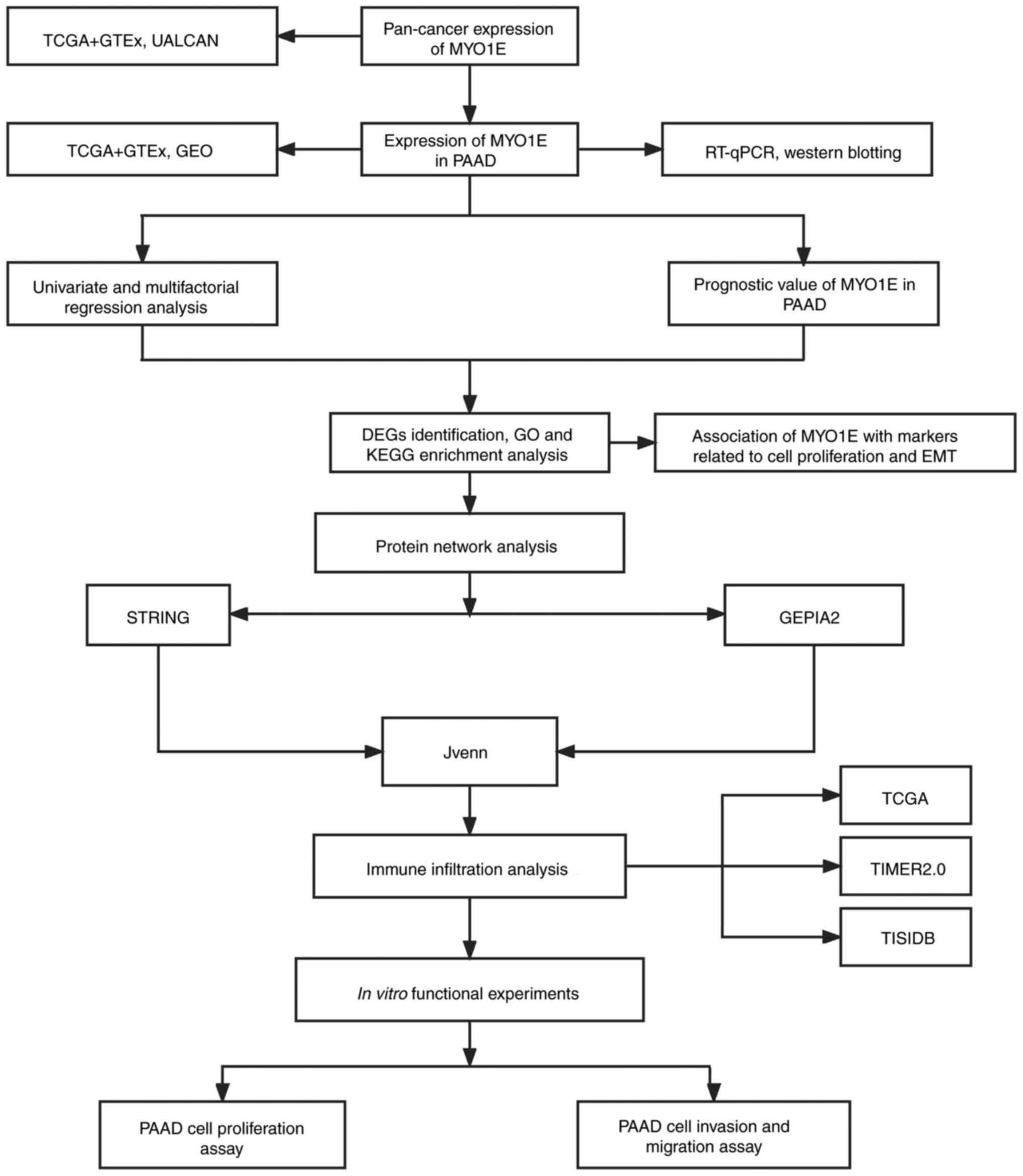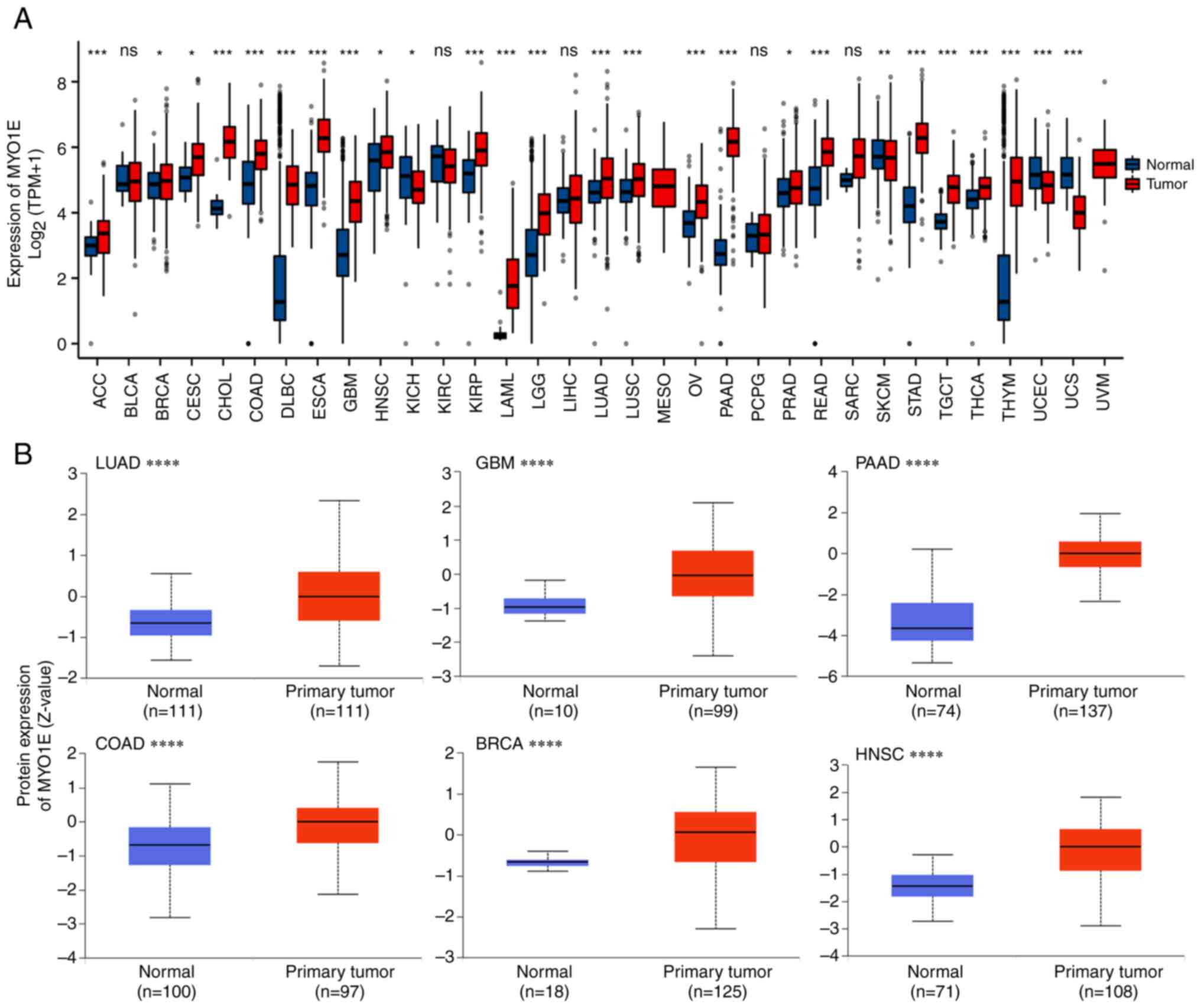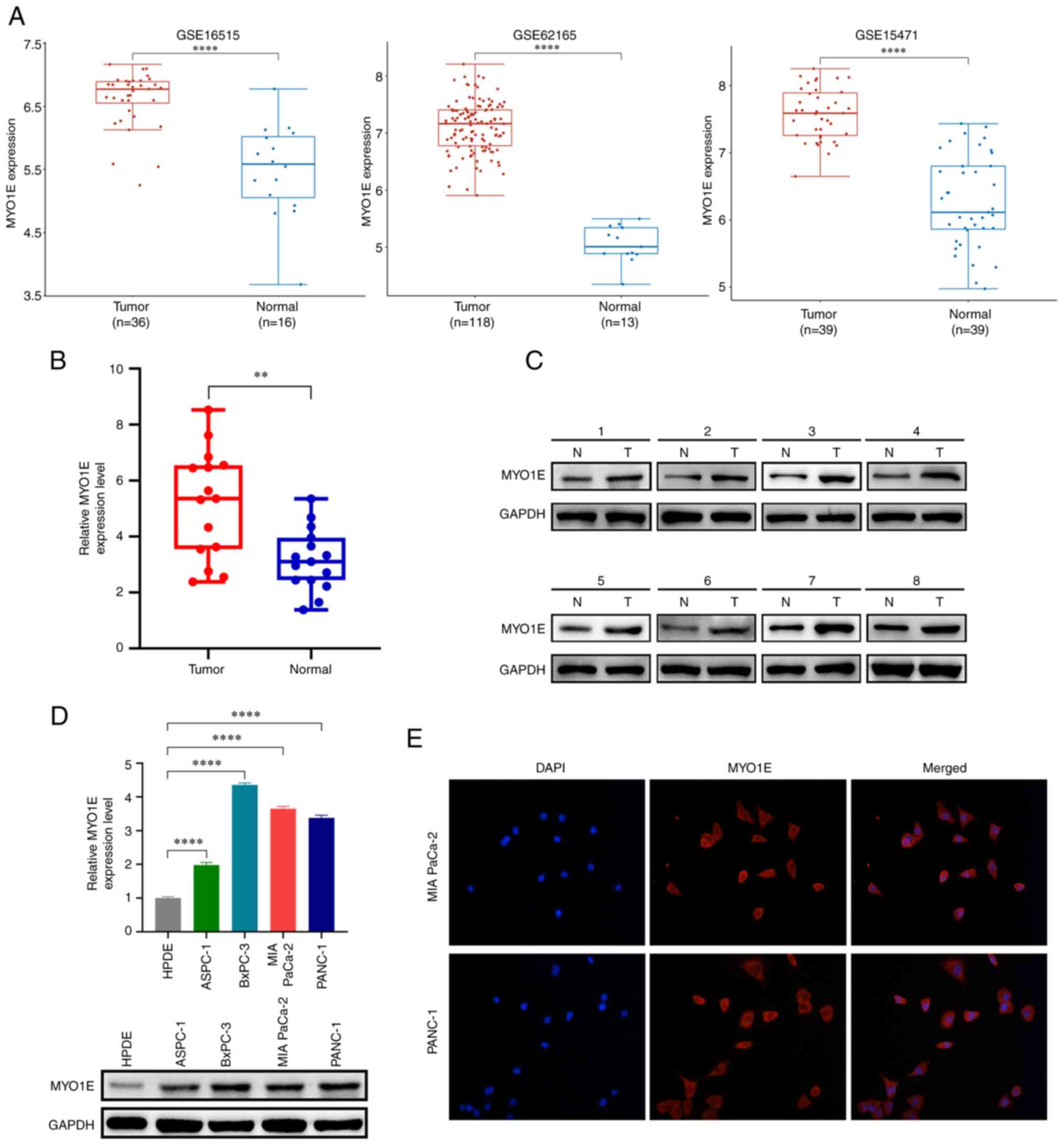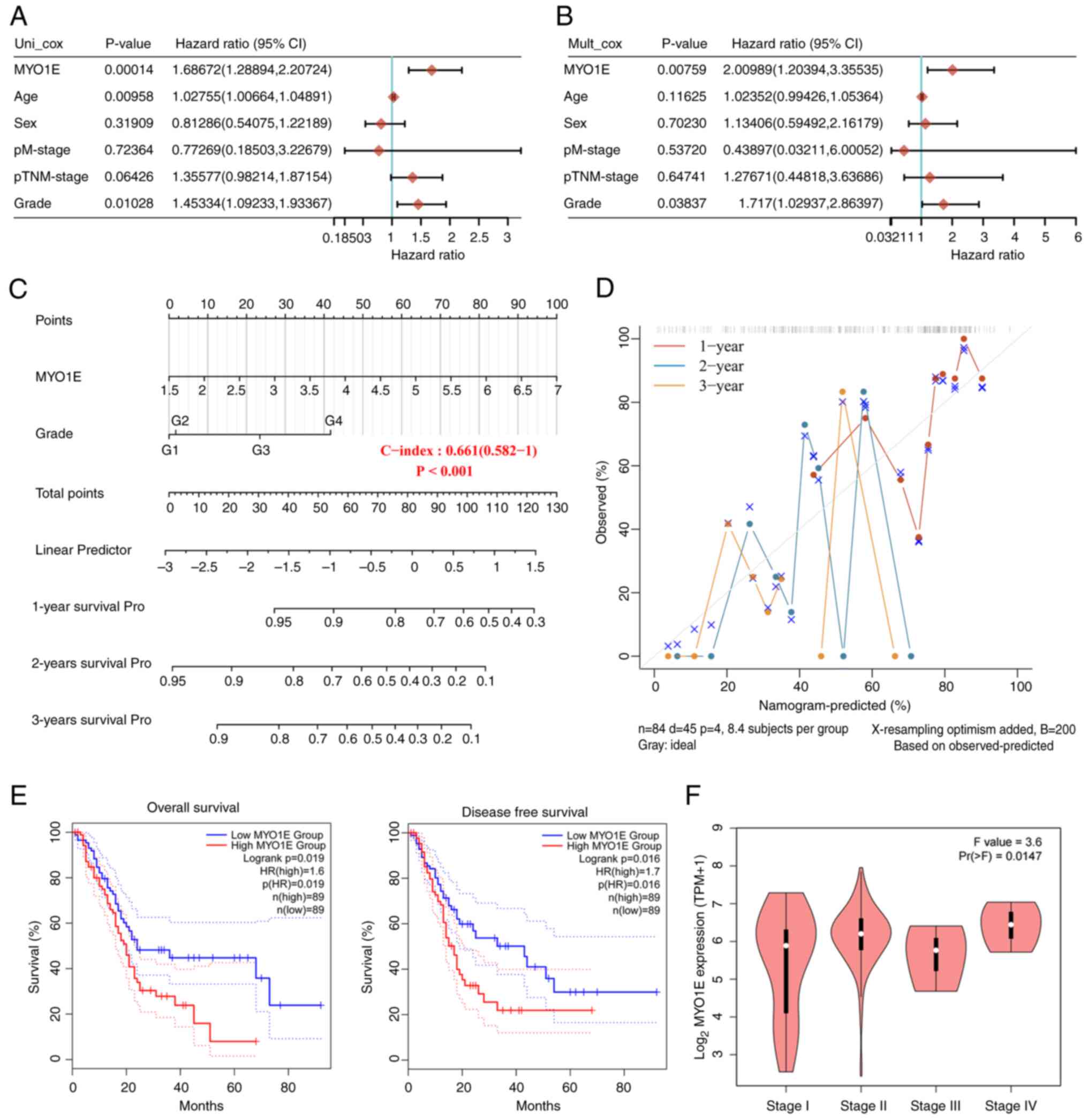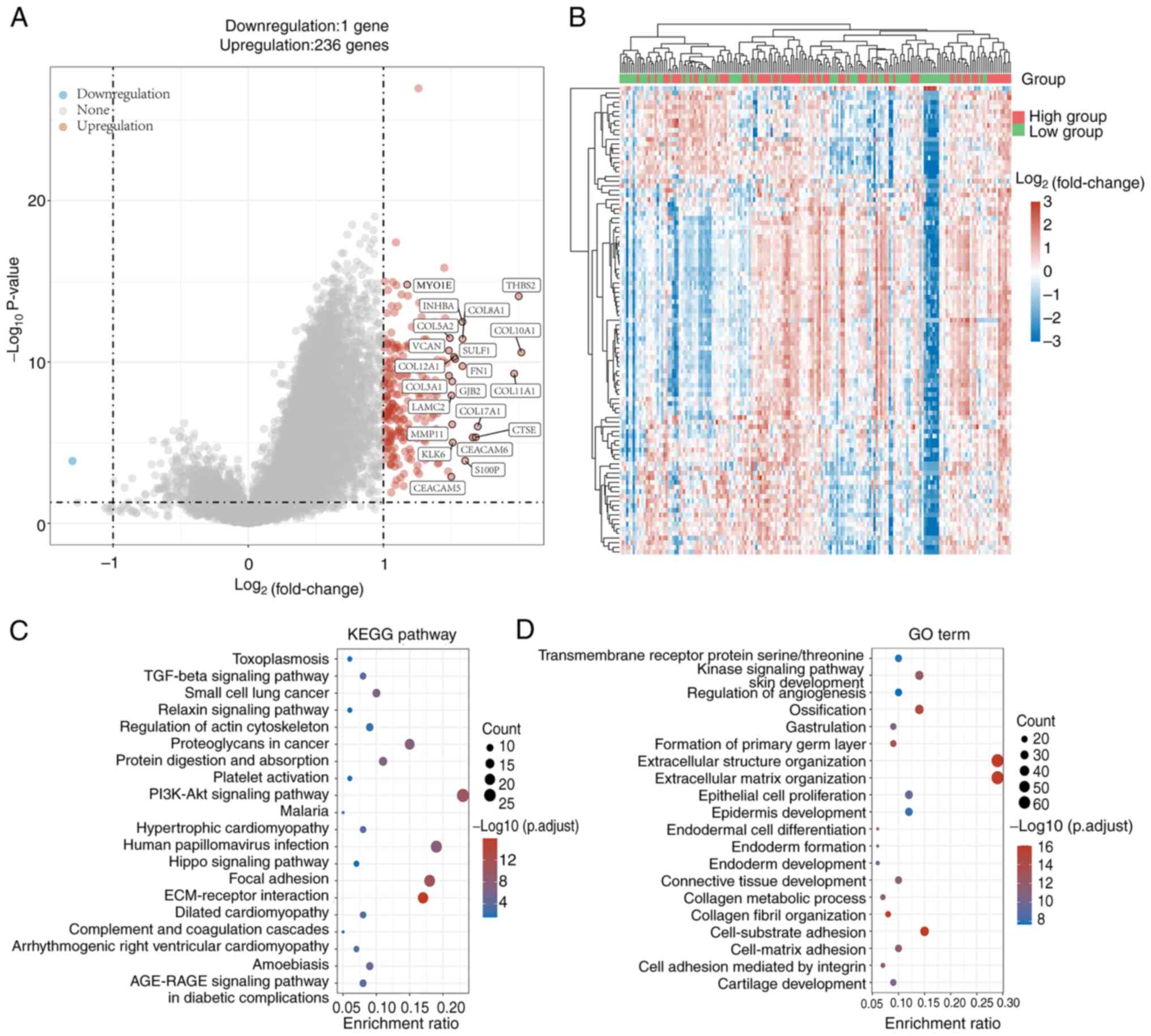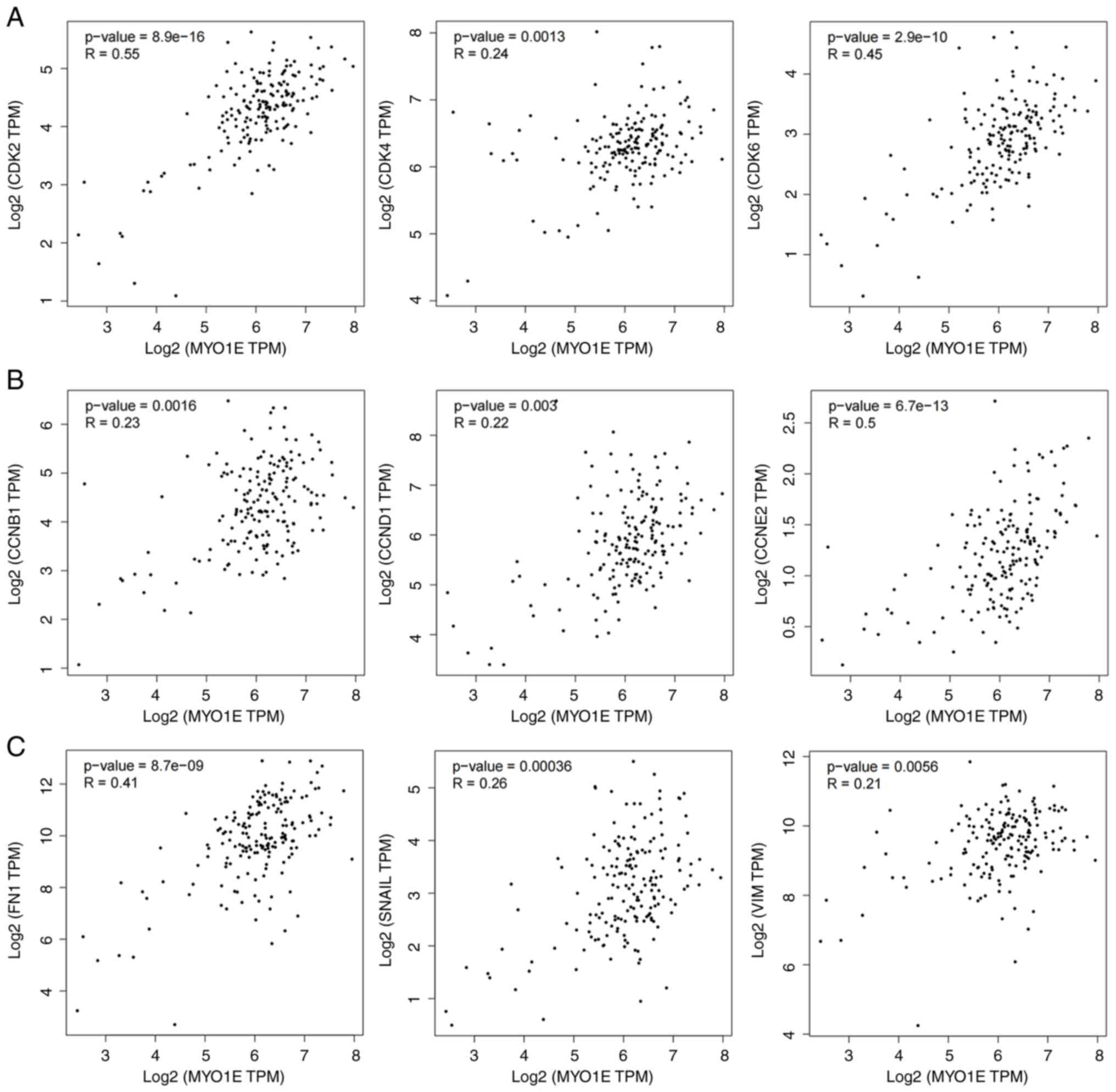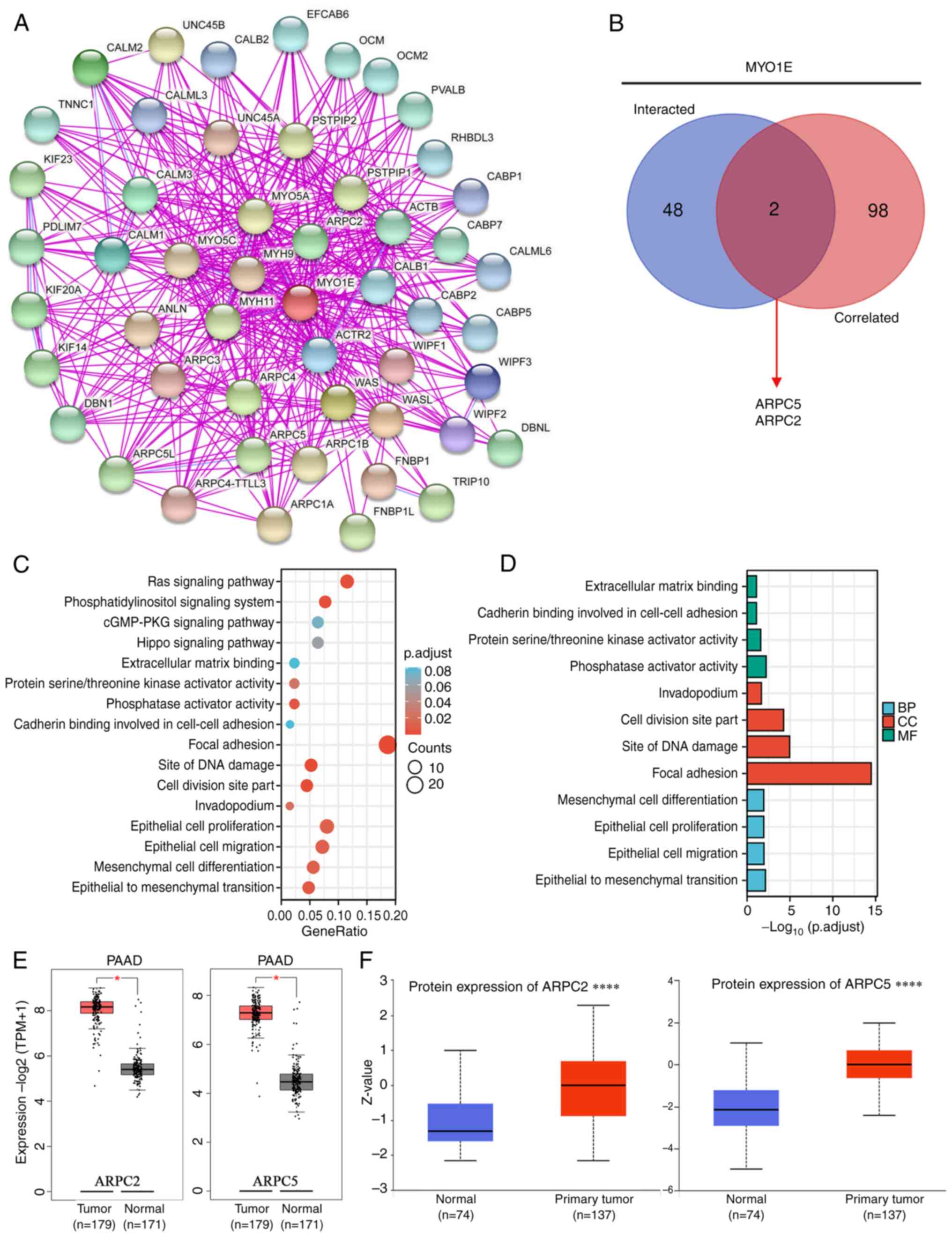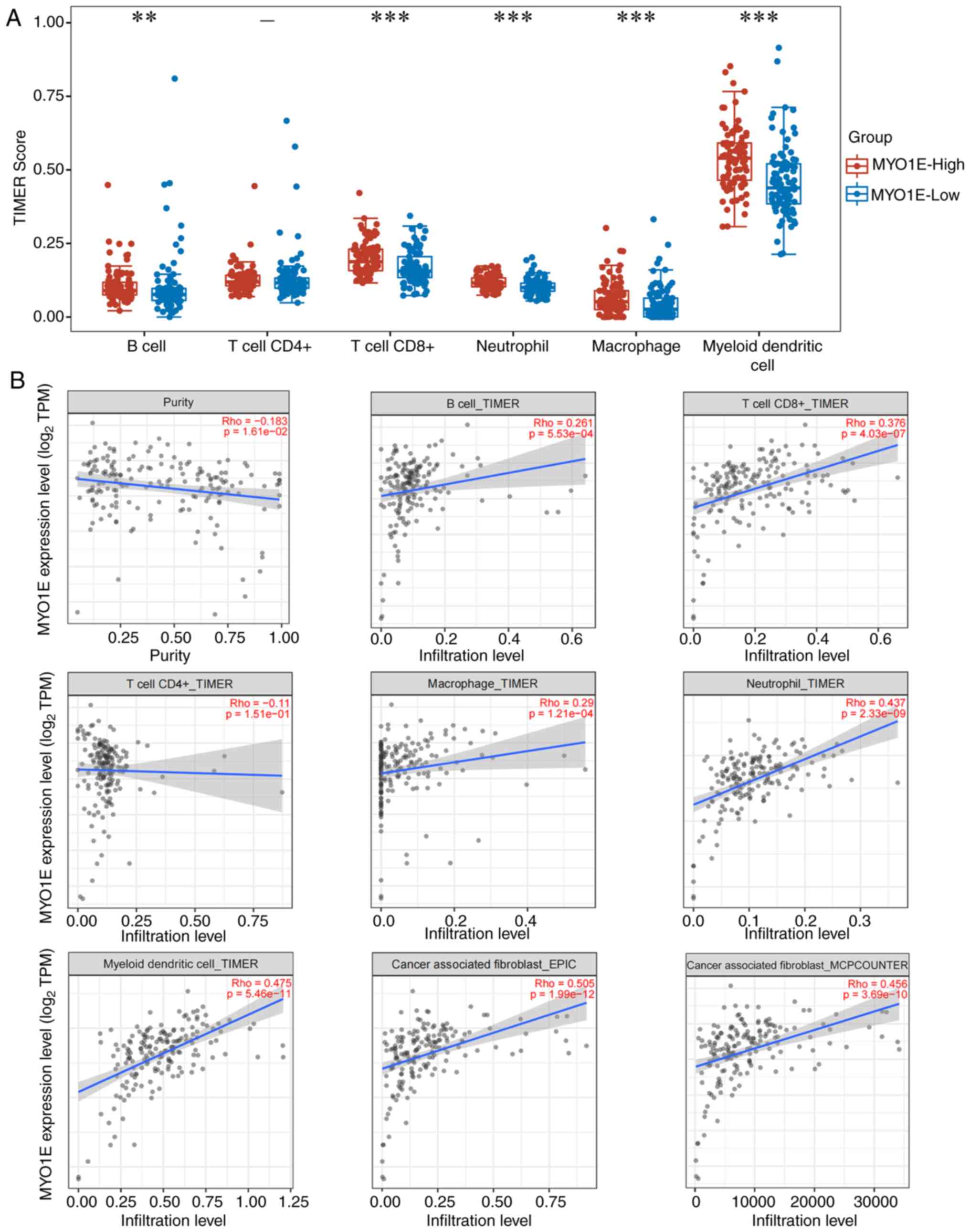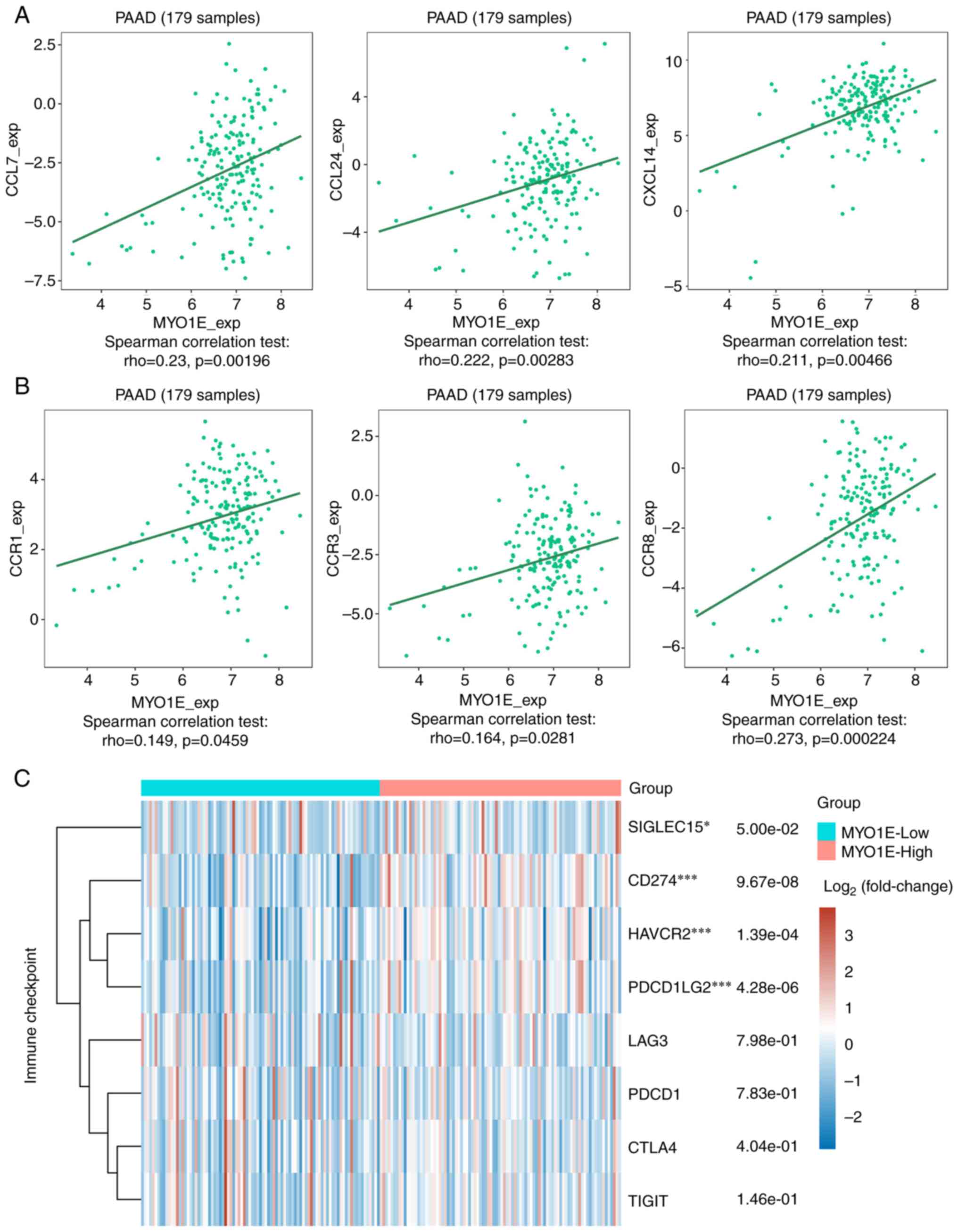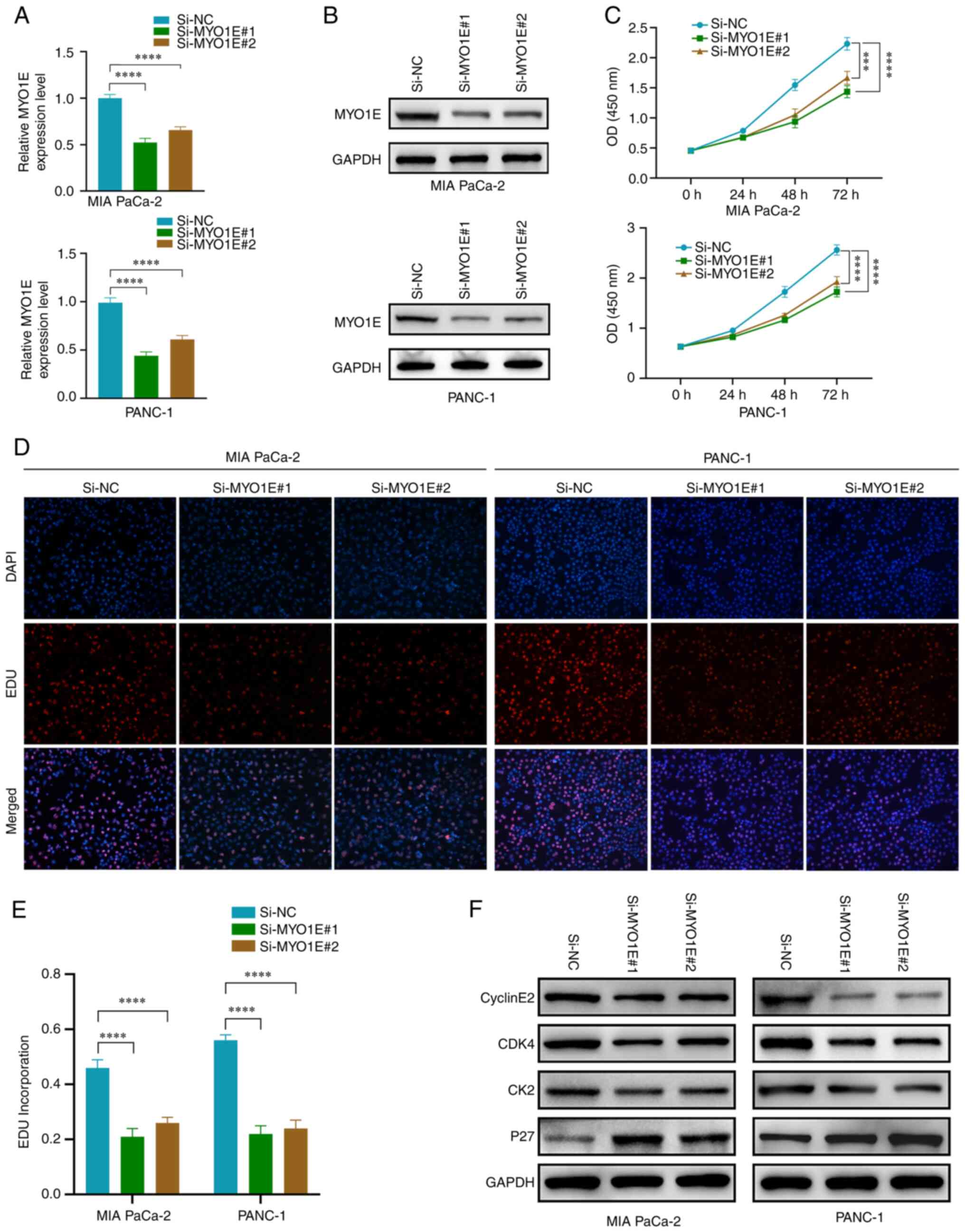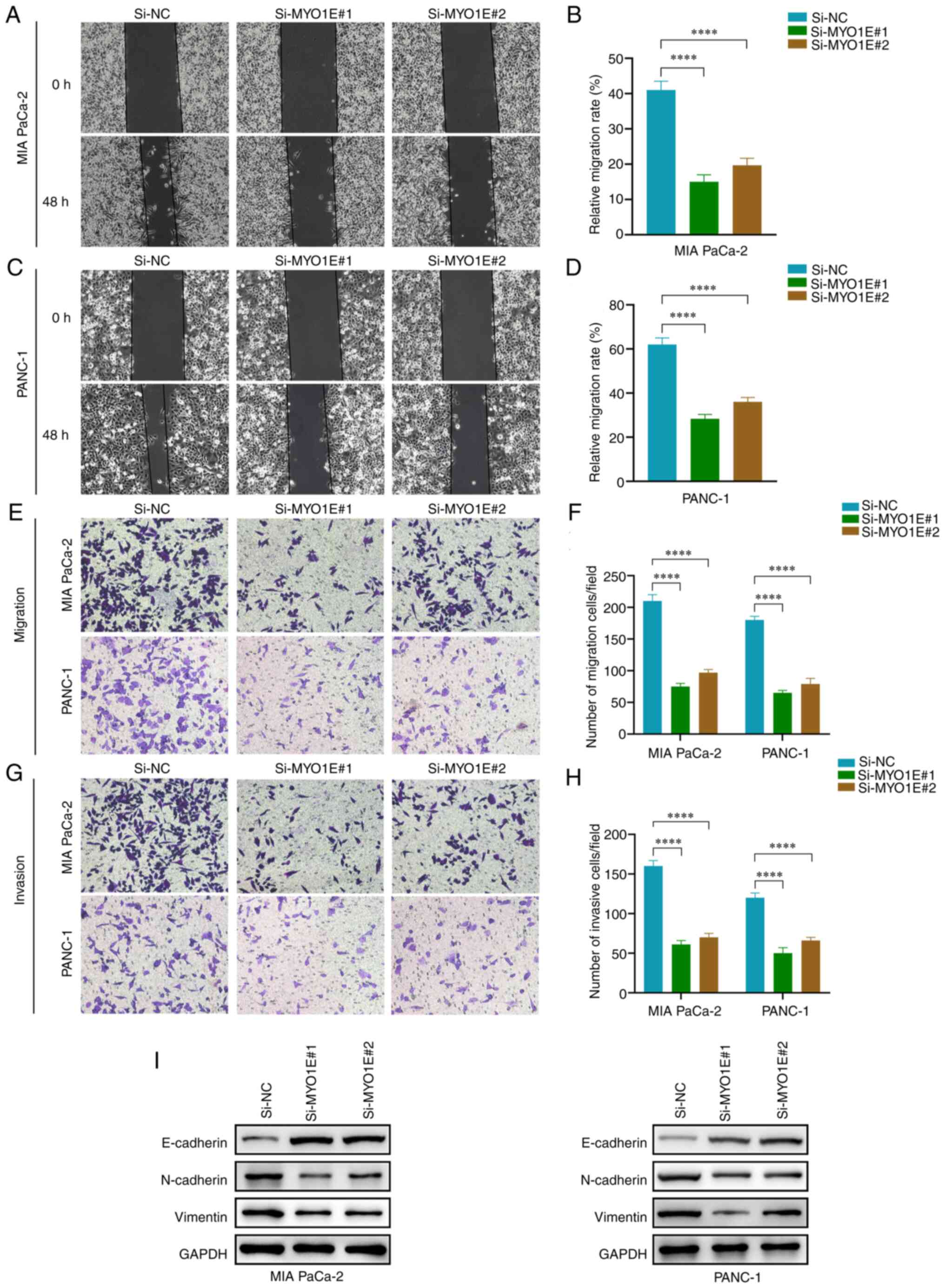|
1
|
Gao H, Xie R, Huang R, Wang C, Wang Y,
Wang D, Liu K, Yang C, Yang Q and Chen L: CIRBP regulates
pancreatic cancer cell ferroptosis and growth by directly binding
to p53. J Immunol Res. 2022:25272102022. View Article : Google Scholar : PubMed/NCBI
|
|
2
|
Garg SK and Chari ST: Early detection of
pancreatic cancer. Curr Opin Gastroenterol. 36:456–461. 2020.
View Article : Google Scholar : PubMed/NCBI
|
|
3
|
Stanciu S, Ionita-Radu F, Stefani C,
Miricescu D, Stanescu S II, Greabu M, Ripszky Totan A and Jinga M:
Targeting PI3K/AKT/mTOR signaling pathway in pancreatic cancer:
From molecular to clinical aspects. Int J Mol Sci. 23:101322022.
View Article : Google Scholar : PubMed/NCBI
|
|
4
|
Tonini V and Zanni M: Pancreatic cancer in
2021: What you need to know to win. World J Gastroenterol.
27:5851–589. 2021. View Article : Google Scholar : PubMed/NCBI
|
|
5
|
Hu JX, Zhao CF, Chen WB, Liu QC, Li QW,
Lin YY and Gao F: Pancreatic cancer: A review of epidemiology,
trend, and risk factors. World J Gastroenterol. 27:4298–321. 2021.
View Article : Google Scholar : PubMed/NCBI
|
|
6
|
Krendel M, Kim SV, Willinger T, Wang T,
Kashgarian M, Flavell RA and Mooseker MS: Disruption of myosin 1e
promotes podocyte injury. J Am Soc Nephrol. 20:86–94. 2009.
View Article : Google Scholar : PubMed/NCBI
|
|
7
|
Shen H, Bao Y, Feng C, Fu H and Mao J:
Overexpression of Myo1e promotes albumin endocytosis by mouse
glomerular podocytes mediated by Dynamin. PeerJ. 8:e85992020.
View Article : Google Scholar : PubMed/NCBI
|
|
8
|
Krendel M, Osterweil EK and Mooseker MS:
Myosin 1E interacts with synaptojanin-1 and dynamin and is involved
in endocytosis. FEBS Lett. 581:644–650. 2007. View Article : Google Scholar : PubMed/NCBI
|
|
9
|
Cheng J, Grassart A and Drubin DG: Myosin
1E coordinates actin assembly and cargo trafficking during
clathrin-mediated endocytosis. Mol Biol Cell. 23:2891–2904. 2012.
View Article : Google Scholar : PubMed/NCBI
|
|
10
|
Feeser EA, Ignacio CM, Krendel M and Ostap
EM: Myo1e binds anionic phospholipids with high affinity.
Biochemistry. 49:9353–9360. 2010. View Article : Google Scholar : PubMed/NCBI
|
|
11
|
Ouderkirk-Pecone JL, Goreczny GJ, Chase
SE, Tatum AH, Turner CE and Krendel M: Myosin 1e promotes breast
cancer malignancy by enhancing tumor cell proliferation and
stimulating tumor cell de-differentiation. Oncotarget.
7:46419–46432. 2016. View Article : Google Scholar : PubMed/NCBI
|
|
12
|
Chandran UR, Medvedeva OP, Barmada MM,
Blood PD, Chakka A, Luthra S, Ferreira A, Wong KF, Lee AV, Zhang Z,
et al: TCGA Expedition: A Data Acquisition and Management System
for TCGA Data. PLoS One. 11:e01653952016. View Article : Google Scholar : PubMed/NCBI
|
|
13
|
GTEx Consortium: The Genotype-tissue
expression (GTEx) project. Nat Genet. 45:580–585. 2013. View Article : Google Scholar : PubMed/NCBI
|
|
14
|
Tang Z, Kang B, Li C, Chen T and Zhang Z:
GEPIA2: An enhanced web server for large-scale expression profiling
and interactive analysis. Nucleic Acids Res. 47:W556–W560. 2019.
View Article : Google Scholar : PubMed/NCBI
|
|
15
|
Bardou P, Mariette J, Escudie F, Djemiel C
and Klopp C: Jvenn: An interactive Venn diagram viewer. BMC
Bioinformatics. 15:2932014. View Article : Google Scholar : PubMed/NCBI
|
|
16
|
Li T, Fu J, Zeng Z, Cohen D, Li J, Chen Q,
Li B and Liu XS: TIMER2.0 for analysis of tumor-infiltrating immune
cells. Nucleic Acids Res. 48:W509–W514. 2020. View Article : Google Scholar : PubMed/NCBI
|
|
17
|
Ru B, Wong CN, Tong Y, Zhong JY, Zhong
SSW, Wu WC, Chu KC, Wong CY, Lau CY, Chen I, et al: TISIDB: An
integrated repository portal for tumor-immune system interactions.
Bioinformatics. 35:4200–4202. 2019. View Article : Google Scholar : PubMed/NCBI
|
|
18
|
Livak KJ and Schmittgen TD: Analysis of
relative gene expression data using real-time quantitative PCR and
the 2(−Delta Delta C(T)) method. Methods. 25:402–408. 2001.
View Article : Google Scholar : PubMed/NCBI
|
|
19
|
Lui JW, Moore SPG, Huang L, Ogomori K, Li
Y and Lang D: YAP facilitates melanoma migration through regulation
of actin-related protein 2/3 complex subunit 5 (ARPC5). Pigment
Cell Melanoma Res. 35:52–65. 2022. View Article : Google Scholar : PubMed/NCBI
|
|
20
|
Mei P, Tey SK, Wong SWK, Ng TH, Mao X,
Yeung CLS, Xu Y, Yu L, Huang Q, Cao P, et al: Actin-related protein
2/3 complex subunit 2-enriched extracellular vesicles drive liver
cancer metastasis. Hepatol Int. 16:603–613. 2022. View Article : Google Scholar : PubMed/NCBI
|
|
21
|
Kinoshita T, Nohata N, Watanabe-Takano H,
Yoshino H, Hidaka H, Fujimura L, Fuse M, Yamasaki T, Enokida H,
Nakagawa M, et al: Actin-related protein 2/3 complex subunit 5
(ARPC5) contributes to cell migration and invasion and is directly
regulated by tumor-suppressive microRNA-133a in head and neck
squamous cell carcinoma. Int J Oncol. 40:1770–1778. 2012.PubMed/NCBI
|
|
22
|
Cheng Z, Wei W, Wu Z, Wang J, Ding X,
Sheng Y, Han Y and Wu Q: ARPC2 promotes breast cancer proliferation
and metastasis. Oncol Rep. 41:3189–3200. 2019.PubMed/NCBI
|
|
23
|
Zhang J, Liu Y, Yu CJ, Dai F, Xiong J, Li
HJ, Wu ZS, Ding R and Wang H: Role of ARPC2 in human gastric
cancer. Mediators Inflamm. 2017:54328182017. View Article : Google Scholar : PubMed/NCBI
|
|
24
|
Huang S, Li D, Zhuang L, Sun L and Wu J:
Identification of Arp2/3 complex subunits as prognostic biomarkers
for hepatocellular carcinoma. Front Mol Biosci. 8:6901512021.
View Article : Google Scholar : PubMed/NCBI
|
|
25
|
Huang S, Sun L, Hou P, Liu K and Wu J: A
comprehensively prognostic and immunological analysis of
actin-related protein 2/3 complex subunit 5 in pan-cancer and
identification in hepatocellular carcinoma. Front Immunol.
13:9448982022. View Article : Google Scholar : PubMed/NCBI
|
|
26
|
Huang S, Dong C, Li D, Xu Y and Wu J:
ARPC2: A Pan-Cancer prognostic and immunological biomarker that
promotes hepatocellular carcinoma cell proliferation and invasion.
Front Cell Dev Biol. 10:8960802022. View Article : Google Scholar : PubMed/NCBI
|
|
27
|
He Z, Gu J, Luan T, Li H, Li C, Chen Z,
Luo E, Wang J, Huang Y and Ding M: Comprehensive analyses of a
tumor-infiltrating lymphocytes-related gene signature regarding the
prognosis and immunologic features for immunotherapy in bladder
cancer on the basis of WGCNA. Front Immunol. 13:9739742022.
View Article : Google Scholar : PubMed/NCBI
|
|
28
|
Zhang D, He W, Wu C, Tan Y, He Y, Xu B,
Chen L, Li Q and Jiang J: Scoring system for tumor-infiltrating
lymphocytes and its prognostic value for gastric cancer. Front
Immunol. 10:712019. View Article : Google Scholar : PubMed/NCBI
|
|
29
|
Chen X and Song E: Turning foes to
friends: Targeting cancer-associated fibroblasts. Nat Rev Drug
Discov. 18:99–115. 2019. View Article : Google Scholar : PubMed/NCBI
|
|
30
|
Barrett RL and Pure E: Cancer-associated
fibroblasts and their influence on tumor immunity and
immunotherapy. Elife. 9:e572432020. View Article : Google Scholar : PubMed/NCBI
|
|
31
|
Nagarsheth N, Wicha MS and Zou W:
Chemokines in the cancer microenvironment and their relevance in
cancer immunotherapy. Nat Rev Immunol. 17:559–572. 2017. View Article : Google Scholar : PubMed/NCBI
|
|
32
|
Ozga AJ, Chow MT and Luster AD: Chemokines
and the immune response to cancer. Immunity. 54:859–874. 2021.
View Article : Google Scholar : PubMed/NCBI
|
|
33
|
Zhang Y and Zheng J: Functions of immune
checkpoint molecules beyond immune evasion. Adv Exp Med Biol.
1248:201–226. 2020. View Article : Google Scholar : PubMed/NCBI
|
|
34
|
Tonini V and Zanni M: Early diagnosis of
pancreatic cancer: What strategies to avoid a foretold catastrophe.
World J Gastroenterol. 28:4235–4248. 2022. View Article : Google Scholar : PubMed/NCBI
|
|
35
|
Siegel RL, Miller KD and Jemal A: Cancer
statistics, 2020. CA Cancer J Clin. 70:7–30. 2020. View Article : Google Scholar : PubMed/NCBI
|
|
36
|
El Mezgueldi M, Tang N, Rosenfeld SS and
Ostap EM: The kinetic mechanism of Myo1e (human myosin-IC). J Biol
Chem. 277:21514–21521. 2002. View Article : Google Scholar : PubMed/NCBI
|
|
37
|
Mele C, Iatropoulos P, Donadelli R,
Calabria A, Maranta R, Cassis P, Buelli S, Tomasoni S, Piras R,
Krendel M, et al: MYO1E mutations and childhood familial focal
segmental glomerulosclerosis. N Engl J Med. 365:295–306. 2011.
View Article : Google Scholar : PubMed/NCBI
|
|
38
|
Jin X, Wang W, Mao J, Shen H, Fu H, Wang
X, Gu W, Liu A, Yu H, Shu Q and Du L: Overexpression of Myo1e in
mouse podocytes enhances cellular endocytosis, migration, and
adhesion. J Cell Biochem. 115:410–419. 2014. View Article : Google Scholar : PubMed/NCBI
|
|
39
|
Tanimura S, Hashizume J, Arichika N,
Watanabe K, Ohyama K, Takeda K and Kohno M: ERK signaling promotes
cell motility by inducing the localization of myosin 1E to
lamellipodial tips. J Cell Biol. 214:475–489. 2016. View Article : Google Scholar : PubMed/NCBI
|
|
40
|
Navines-Ferrer A and Martin M: Long-tailed
unconventional class I myosins in health and disease. Int J Mol
Sci. 21:25552020. View Article : Google Scholar : PubMed/NCBI
|
|
41
|
Yoon YJ, Han YM, Choi J, Lee YJ, Yun J,
Lee SK, Lee CW, Kang JS, Chi SW, Moon JH, et al: Benproperine, an
ARPC2 inhibitor, suppresses cancer cell migration and tumor
metastasis. Biochem Pharmacol. 163:46–59. 2019. View Article : Google Scholar : PubMed/NCBI
|
|
42
|
Kinoshita T, Nohata N, Watanabe-Takano H,
Yoshino H, Hidaka H, Fujimura L, Fuse M, Yamasaki T, Enokida H,
Nakagawa M, et al: Actin-related protein 2/3 complex subunit 5
(ARPC5) contributes to cell migration and invasion and is directly
regulated by tumor-suppressive microRNA-133a in head and neck
squamous cell carcinoma. Int J Oncol. 40:1770–1778. 2012.PubMed/NCBI
|
|
43
|
Zhu H, Li T, Du Y and Li M: Pancreatic
cancer: Challenges and opportunities. BMC Med. 16:2142018.
View Article : Google Scholar : PubMed/NCBI
|
|
44
|
Sunami Y and Kleeff J: Immunotherapy of
pancreatic cancer. Prog Mol Biol Transl Sci. 164:189–216. 2019.
View Article : Google Scholar : PubMed/NCBI
|
|
45
|
Jagodinsky JC, Bates AM, Clark PA,
Sriramaneni RN, Havighurst TC, Chakravarty I, Nystuen EJ, Kim K,
Sondel PM, Jin WJ and Morris ZS: Local TLR4 stimulation augments in
situ vaccination induced via local radiation and anti-CTLA-4
checkpoint blockade through induction of CD8 T-cell independent Th1
polarization. J Immunother Cancer. 10:e0051032022. View Article : Google Scholar : PubMed/NCBI
|















